We discuss the unregulated world of natural health supplements and discuss their safety and if they are what they claim to be.
In August, 2017, CNN, Global News, Fox and various other media outlets all released articles on a new study published in the Journal of Clinical Oncology, linking long-term use of vitamin B12 supplements in men to a 30-40% increase in lung cancer risk. This risk was seen when men consumed doses over 55 mcg/day. But a trip to any health food store reveals shelves stacked with numerous brands of B12 supplements, in doses of 1000mcg or even 5000mcg – way beyond this supposed risk threshold! This study presented totally new information that will need plenty of further investigation (and is really outside the scope of this blog post), but it highlights the constantly evolving understanding of the risks and benefits of supplements and natural health products. While supplements and other Natural Health Products (NHPs) may be of benefit to some folks, there are a number of potential concerns surrounding their use, including unwanted side effects, interactions with other NHPs or prescription medications, inappropriate use, use at unsafe doses, and detrimental health effects due to impure product quality or the presence of contaminating substances or fillers. So how do we know our daily multivitamin isn’t going to make us sick, or whether Echinacea really can cure the common cold? Heck, how can we even be sure those Echinacea tablets don’t just contain powdered lawn clippings? Let’s take a closer look at how NHPs are regulated in Canada, and whether or not we should believe the claims made about the health benefits of these products.
Natural Health Products in Canada
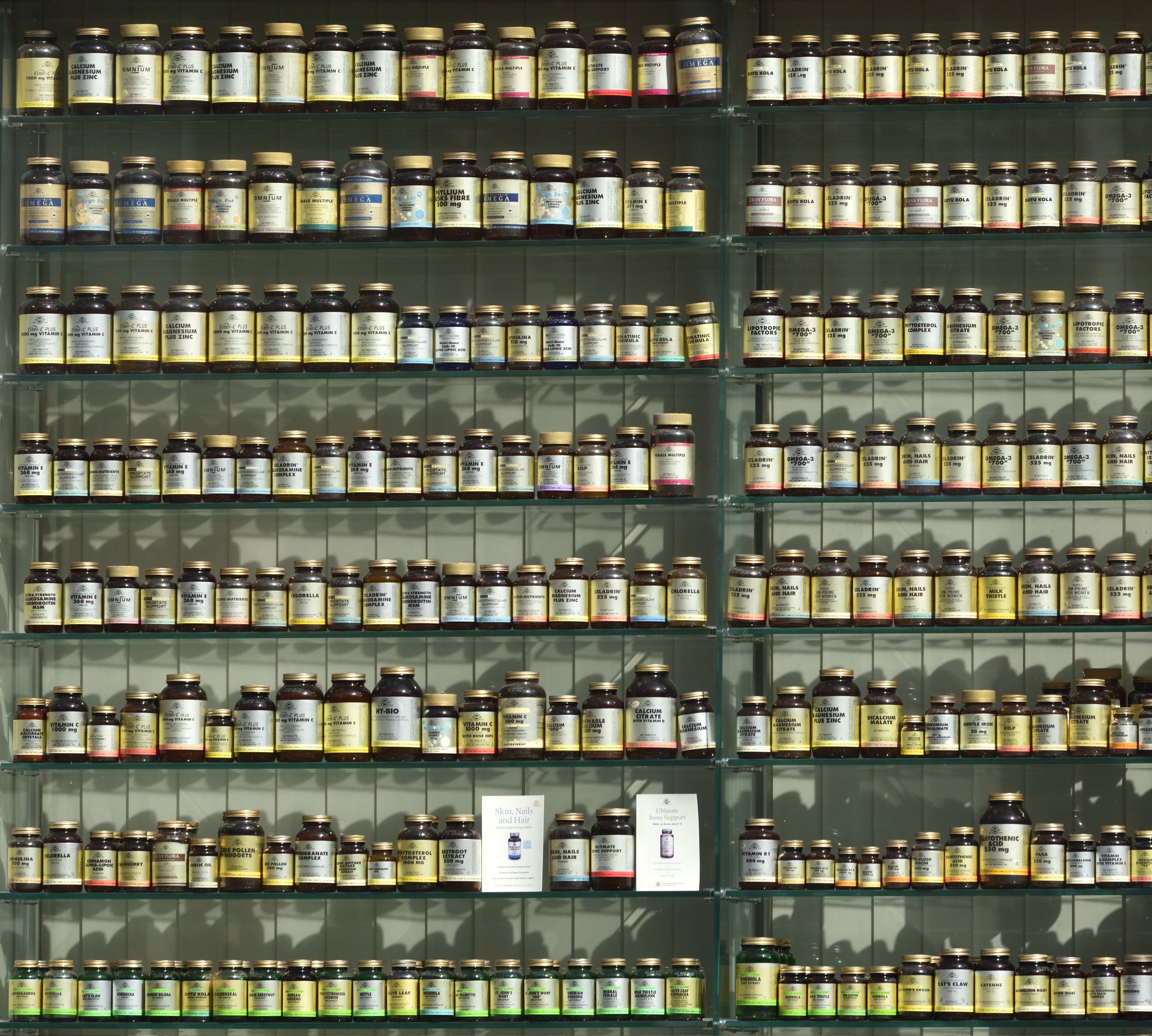
Health food stores are busy places! In 2015, 46% of Canadians took some kind of nutritional or natural health supplement daily, with higher uses found in women and the elderly. While NHP consumption continues to expand, there is surprisingly little in the way of official guidelines recommending safe use of many of these products. The Government of Canada defines NHPs as “naturally occurring substances that are used to restore or maintain good health.” These include vitamins, minerals, herbal preparations, probiotics, traditional medicines and nutraceuticals such as fish oils or amino acids. The main issue with these products cited by Health Canada is unwanted side effects (known officially as “adverse effects”), experienced by a reported 12% of Canadians using NHPs.
Natural Health Product Regulations

To understand how we’ve come to have the few regulations we do have, let’s go back in time a bit. Before 2004, regulation of natural health products and supplements was included in the Food and Drugs Act of 1985, which provided very little motivation for companies to ensure their products met regulation guidelines. With increasing use ($4.3 billion dollars in sales in 2004, HELLO!), natural health products and supplements in Canada started to become a hot-button topic. This lead to the development of the Natural Health Products Regulations (NHPR), which came into effect in January 2004. These regulations set Canada apart as one of the first nations in the world to regulate NHPs as a separate class of product. Fourteen years after the implementation of these regulations, Health Canada is now in the process of proposing a new framework for regulation of NHPs and other “self-care” wellness products.
But what exactly are the existing laws around natural health products and supplements?
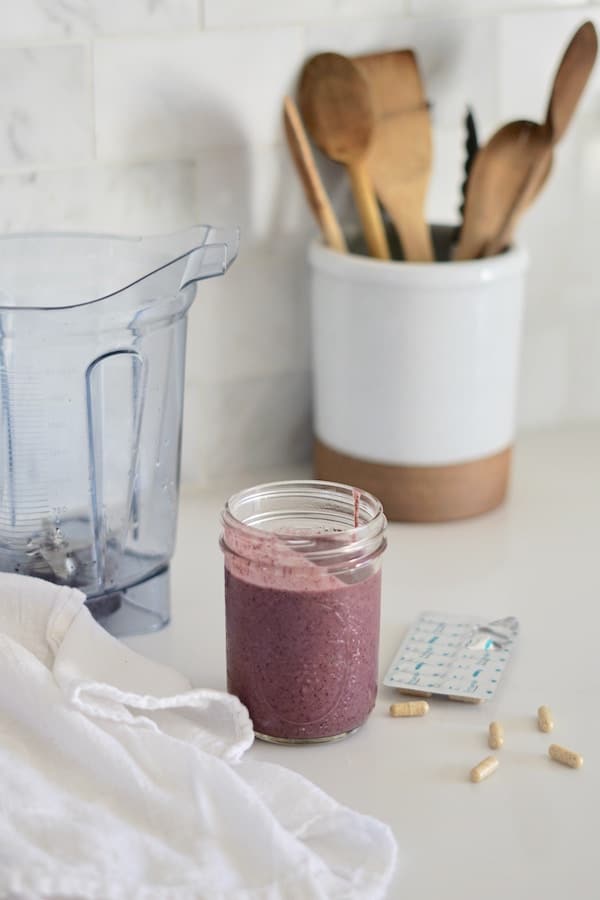
Well, first, according to the NHP Regulations, all NHPs require product licenses, given out by Health Canada after a review of the license application. Once a product is licensed, it receives an 8-digit Natural Product Number (NPN), to be printed on the product label, so consumers are able to identify products that have been approved by Health Canada for safe use. In order to ensure that consumers have access to safe products of good quality, Health Canada set up a series of Good Manufacturing Practices requirements, including guidelines for acceptable facilities and production equipment, robust production staff education and training, regular sample testing and documentation, and appropriate sanitation. And, in case something goes horribly wrong, companies must have established product recall procedures. All NHP-licensed companies must have a system in place allowing consumers to report any adverse reactions to their products, and any serious adverse reactions must be reported to Health Canada, in order to track and review any potential safety issues associated with consumption of these products. Lastly, the NHP Regulations require certain information to be displayed on the product packaging, including all ingredients, recommended doses, warnings, possible adverse reactions, and information allowing the product to be traced to its manufacturer. By 2014, over 70,000 NHPs had been licensed in Canada, demonstrating the massive scale of enacting this policy.
To Regulate or Not to Regulate
When it comes to the regulation of natural health products, it seems everyone has a different opinion, from support for strict regulations like those that apply to prescription drugs, all the way to a desire for no government regulation of supplements at all. It appears some Canadians wish to use NHPs freely, and may even see this as a right or a freedom. And, as a general rule, a majority of Canadians are trusting of the existing regulations and believe that any products that are permitted for sale are safe. However, in 2017, only 4 out of 10 NHPs analyzed in a review by Health Canada met the standards for safety, purity of product and accuracy of labelling. That’s a grossly concerning stat.
Mixing Drugs with Supplements
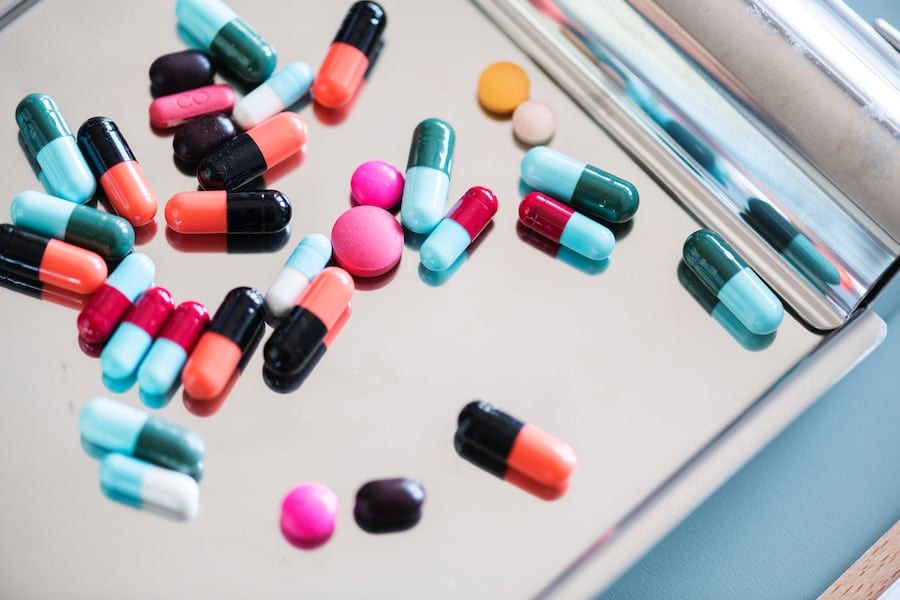
One of the arguments for more regulation is the fact that supplements are not benign. They often interact with other supplements or drugs and therefore it would be advantageous for us to treat them as we do other medications – with consideration of these effects. A 2014 study that found 7% of Canadians who mixed NHPs with standard pharmaceutical treatments (drugs) had adverse effects, as compared to 1.2% of those people taking regular old meds alone. In fact, adding NHPs in with the use of conventional drugs increased the risk of adverse effects by 6.4 times! Take, for example, the herb St. John’s Wort, taken to help with depression. On its own it’s a relatively safe herb, but combined with certain antidepressant medications, it can cause a life-threatening flood of serotonin in the brain. However, it’s important to acknowledge that adverse reactions to conventional drugs alone may cause up to 106,000 deaths annually in hospitalized patients in the US!
The Effectiveness of Natural Health Products and Supplements
Recent “shockumentaries”, such as The Bleeding Edge and Prescription Thugs have highlighted the weaknesses in the US FDA’s approval process for new medical treatments, and seem to have many people concerned about the influence of “Big Pharma”. Natural alternatives may seem like a safer option, free from industry greed, but it’s critical to understand that while some NHPs may play a role in chronic disease prevention, they aren’t always the most effective treatments for critical illnesses. In 2012, an Alberta couple made devastating headlines when their 19-month-old son died of meningitis. The couple had refused to seek standard medical treatment for their child, and chose instead to treat him with “natural remedies”. I don’t know exactly which remedies this family sought out to use, but it’s possible that the claims that they made we’re not grounded in research.
Proving Effectiveness

And herein lies one of the issues with the current unregulated world of natural health supplements. The current regulatory system allows for various levels of proof for a product, depending on its risk level and the health claims being made. This allows very low-risk products such as homeopathic remedies and Traditional Chinese Medicines to make certain health claims based on historical use of such products, without any scientific proof of their benefits. In fact, Health Canada states that for NHPs, “wellness philosophies based on premises other than science” can constitute sufficient supporting information for a product. I’m sorry, but my evidence-based mind is officially BLOWN. For example, traditional Chinese medicine products are considered safe, based entirely on the fact they have been used for thousands of years. Homeopathic products, because they are based in the philosophy (not science!) of homeopathy, are also fair game, but study after study has concluded that homeopathic products have no measurable effects on health. Consumers of these products can likely use them safely, but may be in the dark regarding their true efficacy (or lack thereof). In other words, it’s likely you are just wasting your hard-earned cash. Acceptable claims about these products include the phrase “traditionally used for X,” suggesting that there is not yet any proof the product truly “works”.
But while the need for regulations around NHPs (in the name of safety at the very least) might seem like a no-brainer, a study done by Canadian health economist Cynthia Ramsay concluded that regulating such products, or alternative medicine in general, is not of any benefit to the safety of Canadians. In fact, Ramsay found no measurable improvement to Canadian safety around natural health products, and argues that the Natural Health Product Regulations have cost tens of millions of tax dollars that could be better spent on other, more critical health services. It seems like there’s a lot of work to be done before Canada will have an efficient and effective way of ensuring safety or legitimacy in all NHPs for sale.
Understanding Natural Health Products
One piece of good news is that pharmaceutical students now learn about natural health products and supplements in their training, so in the future, pharmacists should be better equipped to make recommendations and provide precautions about the safe use of these products and interactions with other medications. Unfortunately, some doctors and other healthcare professionals might still be dismissive about alternative health products, leaving people frustrated and poorly informed.
Bottom Line on Regulation and Natural Health Supplements
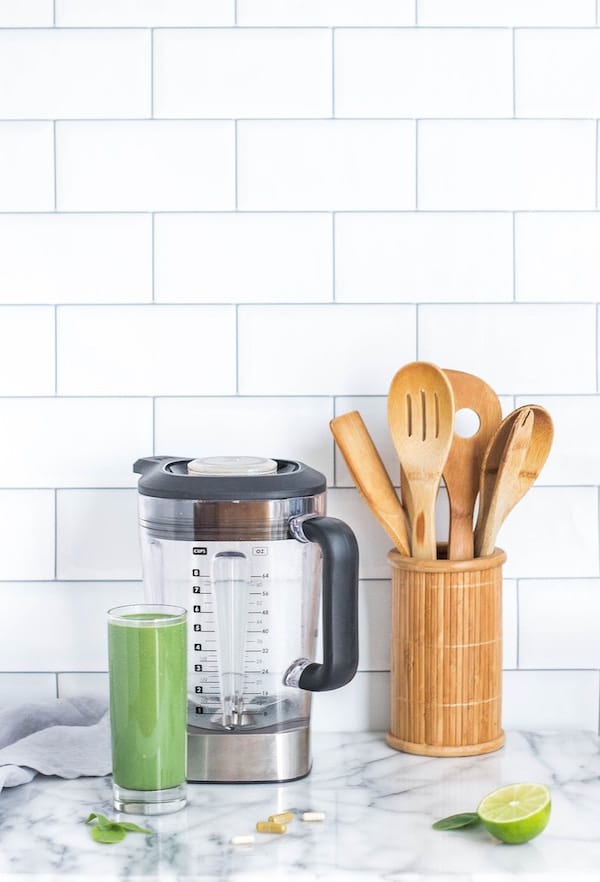
So, is the Canadian government failing when it comes to the regulation of natural health products and supplements? Let’s look at it this way: there are PILES of evidence showing that smoking increases the risk of nearly every health problem under the sun, but the sale of cigarettes is still very much legal. Regulation is different from banning a product – it’s about providing consumers with the information they need to make educated choices.
In the case of vitamin B12, for example, we know that this vitamin is a critical nutrient for cell division, the maintenance of healthy nerve cells and the prevention of a specific type of anemia. Since it’s found only in animal products, vegans and some vegetarians may need a B12 supplement to stay healthy. But as that recent study on the risks of B12 supplements shows, our knowledge about the safety of supplements and other natural health products is always evolving. More is not always better, and dose is important. And just because a product is “natural”, doesn’t make it safe. Anthrax, mercury and tobacco are all very much “natural” items and we know they’re not so great for us!
I also think regulation would be really beneficial for a lot of legitimate supplement and natural health products out there. I know I personally take a lot of supplements because I feel strongly about the evidence we have around them to date (and I’m happy to change my tune if this evidence changes!). Ensuring there are laws around what can and cannot be said about a product, as well as strong research to support a product’s use will separate the woo from the science. It will help consumers “just like you and me!” make decisions about which supplements to purchase to help improve our health and which to leave on the shelf. My hope would be that with this knowledge and information, any unfounded products will eventually be wiped out, and we will be left with products that serve as legitimate compliments to our wellness and health regime.
We should continue to push the government for regulations on natural health products, and continue to stay informed. To me, this means not taking the safety or effectiveness of any specific product for granted so we can continue to maximize the benefits of natural health products, while minimizing any risks.
More Blog Posts You Might Like
Want to learn more about natural health supplements? Check out these blog posts next:
- Female Bodybuilder Diet and Supplements | Is it Safe?
- Are Supplements Safe? How to Choose the Right Supplement
- Can Collagen Supplements Tighten Skin?
- Fertility Supplements and Foods for Getting Pregnant
Now I want to hear from you; have you taken any natural health supplements? Do you think they need further regulation?
Contribution By:
RD2B Adam Weinmann
Updated on July 2nd, 2023

Abbey Sharp is a Registered Dietitian (RD), regulated by the Ontario College of Dietitians. She is a mom, YouTuber, Blogger, award winning cookbook author, media coach specializing in food and nutrition influencers, and a frequent contributor to national publications like Healthline and on national broadcast TV shows.
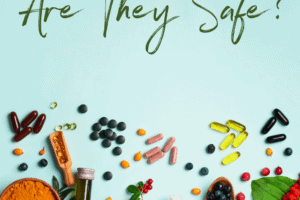

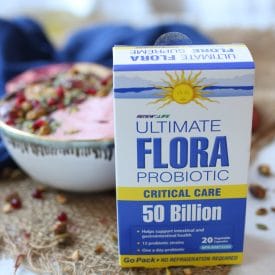


Koby Andrade says
Hi, thanks a lot for the article, very nicely explained.
Abbey Sharp says
Thank you!
erin says
Hey Abbey what do you think of consumerlab.com? I’ve been trying to find an unbiased resource for testing of supplements in order to provide evidence-based and tested information to patients… curious of your opinion on it?
Deborah Brooks says
I have always been leery of over the counter supplements. I believe it’s really important to know exactly what is in them and how that might interact with other things you might take
Abbey Sharp says
Definitely!